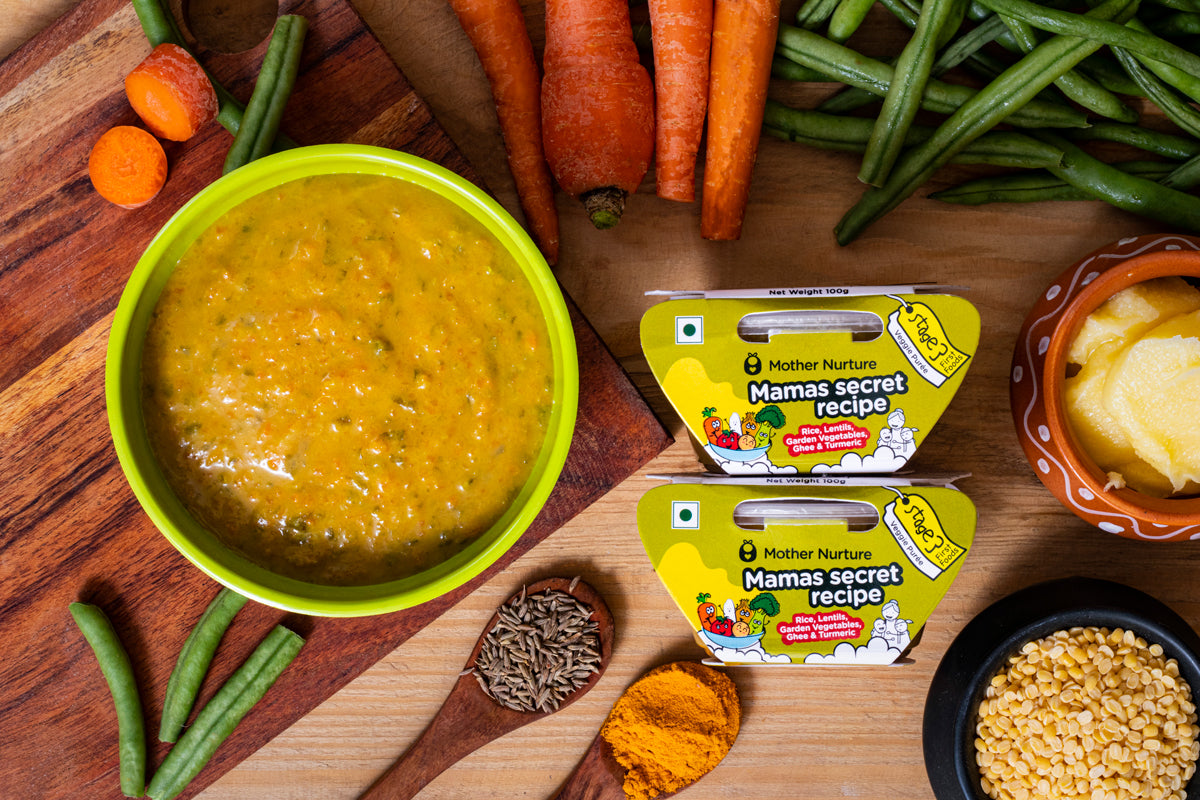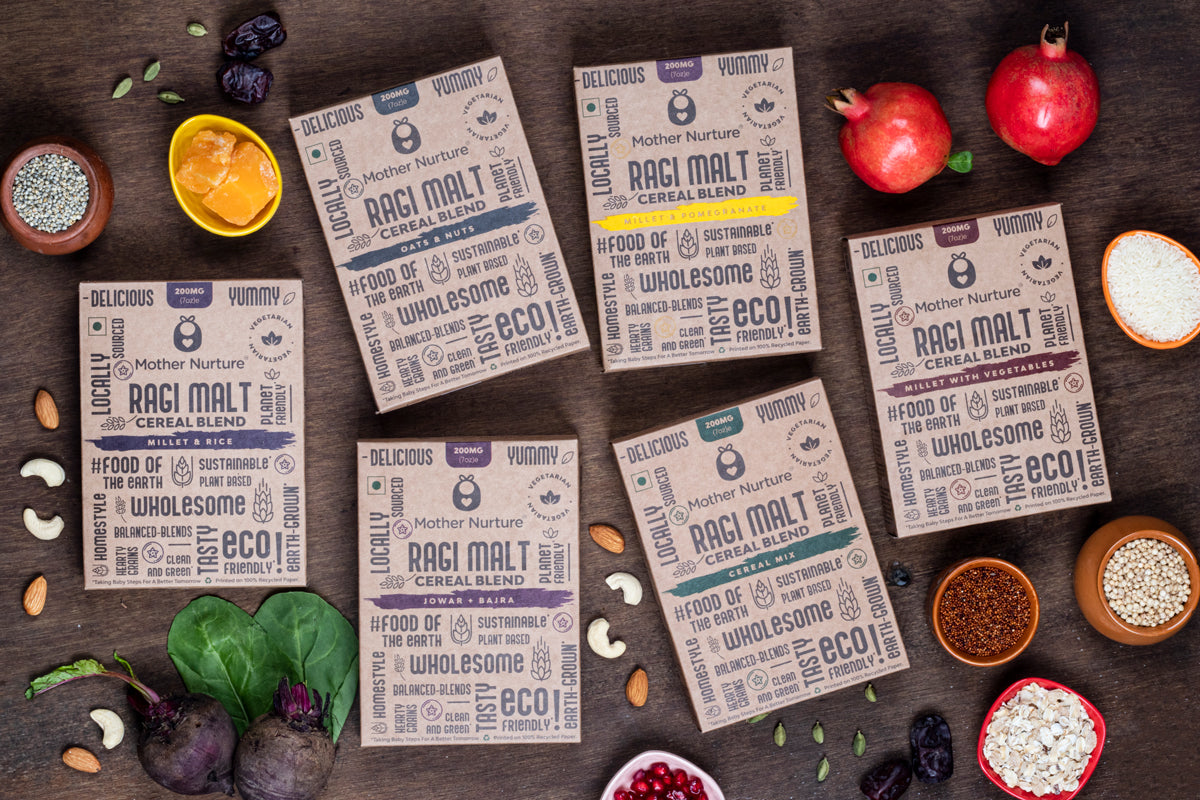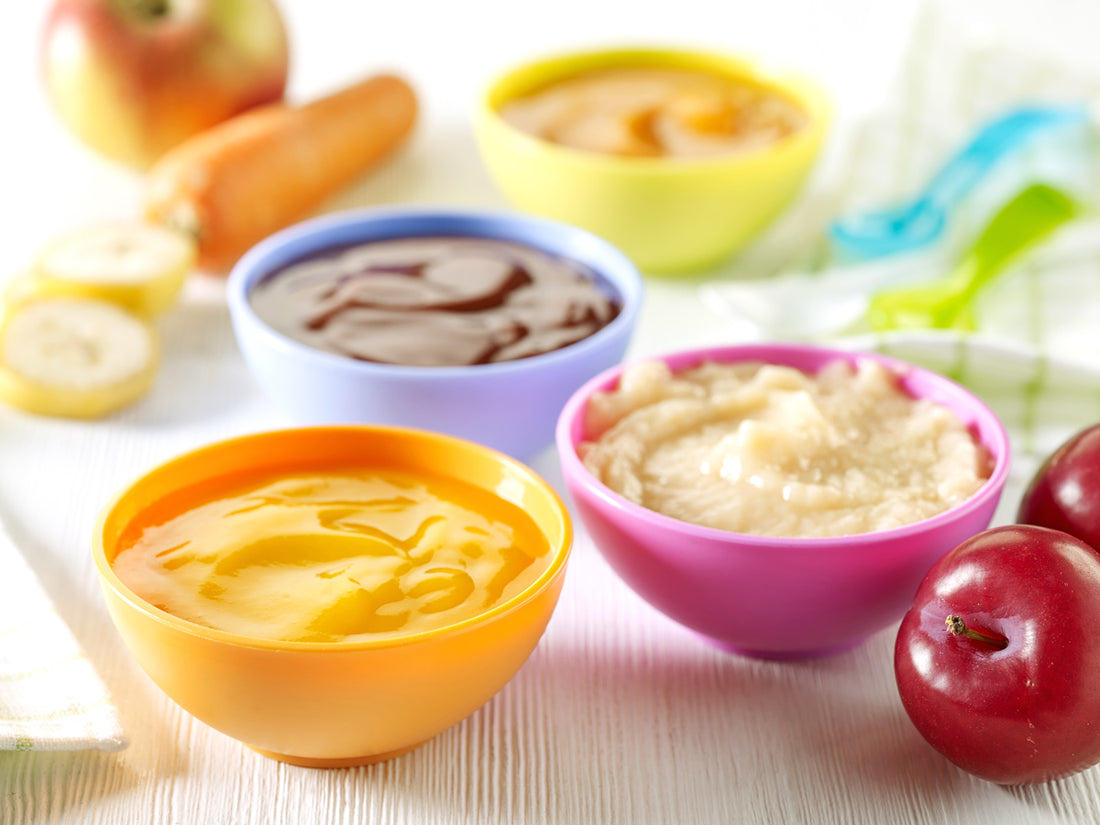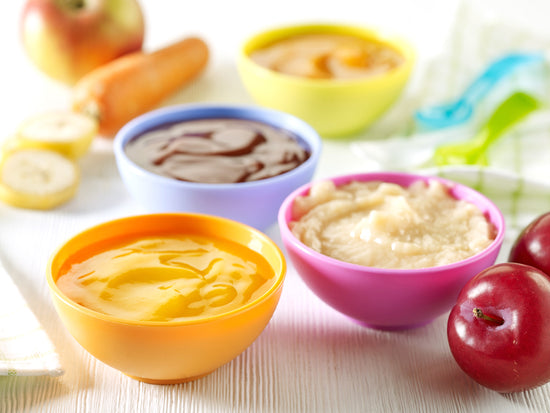Wow, weaning your baby – that can be a nerve-wracking time, right? They're going from just milk to, well, actual food! Luckily, there's tons of info out there these days, in books and online, to help you navigate this whole new world of feeding your little one.
For example, even the American Academy of Pediatrics (AAP), weaning should ideally start at around six months of age. By then, babies more nutrients than what can be gleaned from breast milk or formula. So, introducing solid foods now keeps them getting everything they need to grow big and strong. But let's be honest, this whole weaning thing can be overwhelming.
What kind of food should you give them? How do you make it so it's healthy and yet easy for them to eat?
These are the kinds of questions that pop into every parent's head at this stage. That's why this blog helps!
We're going to take a look at the top 5 Indian superfoods you can introduce to your 6-month-old baby.
1) Dal (Lentils): A Superfood For Babies
Okay, let's talk about lentils, especially nutrient-rich moong dal. It's been a baby food staple in India forever, because it is so easy to digest. Plus, it's packed with protein, iron, and fibre. Iron is especially important for brain development.
Just remember to start slow when starting with lentils! Mash those lentils up nice and smooth so they can be easily swallowed. You can mix in some breast milk, formula, or even some veggie mush to make the transition easier.
Keep an eye out for allergies or digestion issues, and talk to your pediatrician if you notice any discomfort. With a little extra prep work, lentils can be a delicious and nutritious first solid meal for your baby!
You can try our healthy, delicious and yummy Mama’s Secret Recipe made from dal, rice, ghee and vegetables.

2) Ghee: Clarified Butter Power
Ghee or clarified butter is another traditional Indian food. It's loaded with healthy fats, vitamins A, D, E, and K, and all sorts of good micronutrients that help in overall development. The healthy fats of ghee help babies to absorb other fat-soluble vitamins, and make their immune systems strong.
As always, start with a tiny bit, like half a teaspoon. Mix in some mashed fruits, veggies, or grains. Gradually increase the amount as needed. Make sure you get high-quality, pure ghee (homemade is best) and watch for any allergies or gas.
Always check with your pediatrician before introducing any new food and this is also true for ghee.
3) Millets (Ragi): Tiny Grains, Big Benefits
Millets, like ragi (finger millet), are another great first solid foods. They're rich in calcium and thus good for building strong bones. They also contain iron and several important vitamins and minerals that help your baby grow. Plus, they're gluten-free, which is perfect for babies with sensitive stomachs.
Cook some ragi flour with milk or even just water. Keep it in a smooth, thin porridge consistency. Start with a little and slowly make the porridge thicker as your baby gets used to its texture. Ragi, like other millets, is considered a superfood as it is full of nutrients.
Parents can try our Wholesome Multigrain Millets cereals that serves as energy booster and improves gut health.

4) Apples & Bananas: Sweet Treats
Apples and bananas make perfect first foods too. They're naturally sweet, gentle on the tummy, and full of vitamins, fiber, and energy-boosting carbs.
When choosing the fruit, make sure that you pick nice, soft, ripe ones. Peel them first and then mash or puree them to avoid any choking hazards.
Start with tiny quantities and mix the puree with breast milk, formula, or some cooked grains for extra nutrition and texture.
Our A for Apple and Banana Fanana puree are one of the best food for babies with natural sweet taste. We also have Apple and Banana puree together in A for Apple and Banana Fanana multi-pack.
5) Carrots: A Good Choice For Healthy Eyes
Carrots are another fantastic first food! They contain beta-carotene, which turns into vitamin A in their bodies, helping them see clearly, keeping their skin healthy, and boosting their immune system. Plus, they have fiber, vitamin K, and antioxidants to keep their tummies happy and their bodies strong.
Steam or boil the carrots until they're nice and soft, then mash or puree them smooth – no lumps allowed, choking hazard! Start with tiny spoonfuls and gradually increase the amount as your baby gets used to the taste.
You can mix them with breast milk, formula, or other veggies for some variety and extra nutrients. Watch for any allergies or tummy troubles, and talk to your paediatrician if you have any concerns.
With their bright colour, sweet flavour, and all those good-for-you nutrients, carrots are a perfect addition to your baby's solid food journey.
Babies love our Jumping Jack Rabbit carrot puree because of it's unique smooth texture, delicious taste and vibrant colour.
You can also check our Mother Nurture Multi Puree Trial Pack and Wholesome Millet Cereal Trial Pack adding different variety of taste, textures, flavours and nutrients to the baby food.





